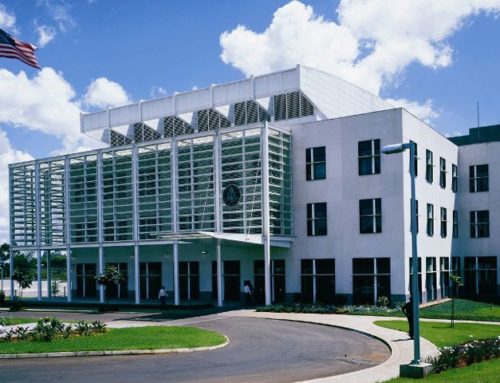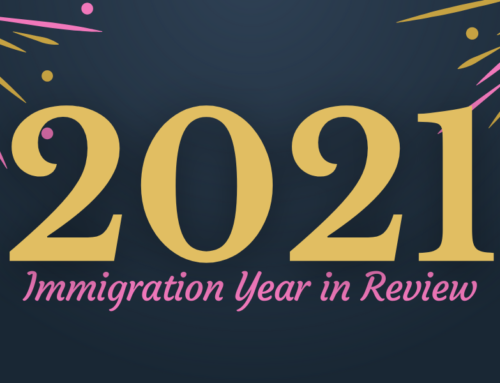We are in a time of great uncertainty as we deal with the devastation that the Covid-19 outbreak has brought with it. In addition to the rising death toll, the number of workers who have lost their jobs continues to rise as well.
We’ve received a lot of inquiries from folks who are on H-1B, DACA or other nonimmigrant statuses, asking whether they will receive a stimulus check from the government pursuant to the Families First Coronavirus Response Act, or whether they qualify for unemployment now that they have lost their jobs.
Regarding the stimulus check, the IRS has already started to send stimulus checks based on 2018 and 2019 tax returns. If you filed a 2018 or 2019 tax return using a SSN number, and all household members included in the tax return had a SSN (not an ITIN), then you will receive a stimulus check if your household income was below a certain threshold.
Checks will be $1,200 per adult, or $2,400 for married couples filing jointly, plus an additional $500 per child. The amount of the stimulus check phases out for those earning more than $75,000, or $150,000 for joint returns and $112,500 for heads of household. For every $100 of income above those thresholds, the amount of the check will drop by $5. For example: if you are a single taxpayer earning $75,100, your check will be $1,155 ($1,200-$5). Therefore, you will not receive a stimulus check if you are a single taxpayer earning $99,000 or more, or a married couple filing jointly earning $198,000 or more, or a head of household earning $136,500.
Regarding unemployment benefits: Unemployment benefits are generally not a means-tested public benefit. It is something that the employer and employee typically pay into. Therefore, if you worked with employment authorization such as is the case with DACA recipients and other nonimmigrant statuses, and if you meet all other eligibility requirements to receive unemployment benefits as defined by the state where you are employed, then you may receive unemployment benefits in the event of a layoff.
A note for those on H-1B: Employment authorization pursuant to H-1B status is employer specific. This means that if the employer who sponsored you for your H-1B lays you off, then you have a 30-day grace period after the end of your employment to find new employment, but the new employer must sponsor you for a new H-1B visa. Your prior H-1B authorizes you to work only for the employer who sponsored you, not any employer.
This is important to keep in mind not only when seeking new employment opportunities, but also when considering unemployment benefits. Many states require that you be eligible/authorized to work – meaning that you could start a new job if an opportunity arose – as a condition to receiving unemployment benefits. This may not be the case for a worker who was in H-1B status but was laid off and more than 30 days have passed since the last day of work.
We are in a time of great uncertainty as we deal with the devastation that the Covid-19 outbreak has brought with it. In addition to the rising death toll, the number of workers who have lost their jobs continues to rise as well.
We’ve received a lot of inquiries from folks who are on H-1B, DACA or other nonimmigrant statuses, asking whether they will receive a stimulus check from the government pursuant to the Families First Coronavirus Response Act, or whether they qualify for unemployment now that they have lost their jobs.
Regarding the stimulus check, the IRS has already started to send stimulus checks based on 2018 and 2019 tax returns. If you filed a 2018 or 2019 tax return using a SSN number, and all household members included in the tax return had a SSN (not an ITIN), then you will receive a stimulus check if your household income was below a certain threshold.
Checks will be $1,200 per adult, or $2,400 for married couples filing jointly, plus an additional $500 per child. The amount of the stimulus check phases out for those earning more than $75,000, or $150,000 for joint returns and $112,500 for heads of household. For every $100 of income above those thresholds, the amount of the check will drop by $5. For example: if you are a single taxpayer earning $75,100, your check will be $1,155 ($1,200-$5). Therefore, you will not receive a stimulus check if you are a single taxpayer earning $99,000 or more, or a married couple filing jointly earning $198,000 or more, or a head of household earning $136,500.
Regarding unemployment benefits: Unemployment benefits are generally not a means-tested public benefit. It is something that the employer and employee typically pay into. Therefore, if you worked with employment authorization such as is the case with DACA recipients and other nonimmigrant statuses, and if you meet all other eligibility requirements to receive unemployment benefits as defined by the state where you are employed, then you may receive unemployment benefits in the event of a layoff.
A note for those on H-1B: Employment authorization pursuant to H-1B status is employer specific. This means that if the employer who sponsored you for your H-1B lays you off, then you have a 30-day grace period after the end of your employment to find new employment, but the new employer must sponsor you for a new H-1B visa. Your prior H-1B authorizes you to work only for the employer who sponsored you, not any employer.
This is important to keep in mind not only when seeking new employment opportunities, but also when considering unemployment benefits. Many states require that you be eligible/authorized to work – meaning that you could start a new job if an opportunity arose – as a condition to receiving unemployment benefits. This may not be the case for a worker who was in H-1B status but was laid off and more than 30 days have passed since the last day of work.






